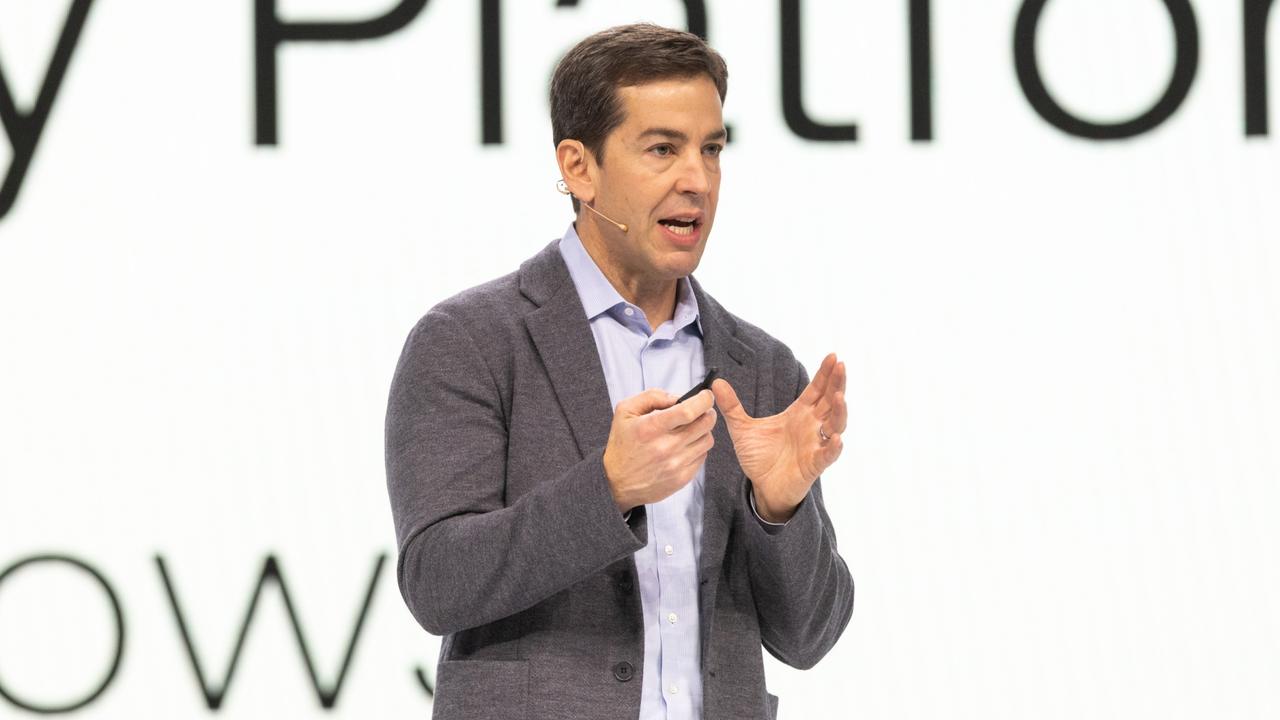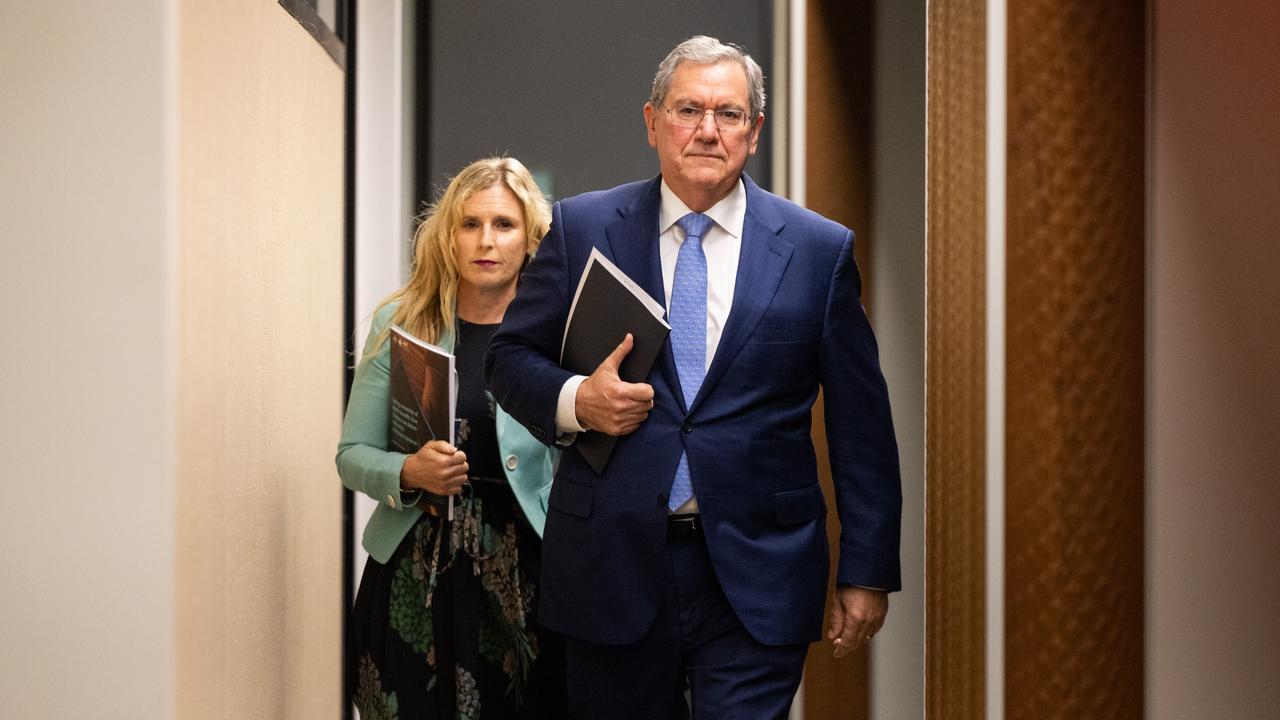Okta CEO warns Microsoft’s ‘dangerous’ one-stop AI strategy will ‘hurt’ companies
There is a reason why capitalism is good: it promotes competition, the co-founder and CEO of identity software maker Okta says. But he warns Microsoft’s artificial intelligence strategy is putting that at risk.

Business
Don't miss out on the headlines from Business. Followed categories will be added to My News.
Companies pinning their artificial intelligence strategies on ‘one-stop shops’ like Microsoft, risks hindering innovation, says Todd McKinnon, co-founder and chief executive of $US13.01bn ($19.88bn) identity software maker Okta.
Australian businesses are struggling to transition AI experiments into production, citing ‘hallucinations’, data leaks and other security concerns.
Microsoft has attempted to alleviate this problem, launching a suite of new products to accelerate the development of AI tools. But Mr McKinnon cautioned against relying on solely this approach.
“Vendors like Microsoft are trying to get companies to use everything from Microsoft. They’re playing on the fear of ‘oh, this is uncharted waters’. Maybe as a company, you’re not as advanced, and you’re worried about how to take advantage of these things, so you let Microsoft do it all, and everything will be perfect,” Mr McKinnon told The Australian.
“Frankly, I think that’s risky. If you rely on one company for everything, you’re really relying on them to innovate. There is a reason that capitalism is good, which is there is a lot of competition, and you’re not locked into one central planning commission to do all your innovation.
“And when you say, ‘Oh, I’m scared of the future, AI is a big risk, I’m going to allow one monolithic platform to do it all for me’, you’re not opening yourself up to all that innovation and all that competitive dynamic that gives you the best solutions.”

The dramatic rise of generative – or conversational – AI has also sparked consolidation.
Telstra has signed a multi-year deal with Indian titan Infosys to automate more of its software engineering capabilities and accelerate its shift from legacy platforms, via artificial intelligence – a move that has resulted in the telco slashing the number of its main vendors from more than 40 to two. Telstra also signed a five-year agreement with Microsoft in July.
Mr McKinnon – who was speaking while he was visiting Okta’s customers in Australia – said the best companies were investing in multiple vendors to drive their AI strategies.
“You have to take an approach for technology that puts yourself in the game. Yes, there’s security risks, but there is also opportunity. There is a potential to gain from it as there’s potential to lose.
“And companies that take advantage of that, investing aggressively with a wide variety of companies or vendors and approaches are going to be positioned to win versus being conservative and saying ‘hey, you know, we’re going to just let someone else do it for me’.”
After hitting a high of $US292 in February 2021 before falling to a low of $US45.02 in November 2022, Okta’s shares have traded largely sideways for the past two years, fetching $US76.52 on Monday. In same period, Microsoft shares have soared from $US221.39 to $US417, valuing the company at $US3.1 trillion.
Okta provides a secure way for employees to verify their identity and has found itself going head-to-head with Microsoft. He criticised the Seattle-based behemoth for “outsourcing their R&D” via reportedly investing $US13bn in ChatGPT maker OpenAI.
“You could give them credit, that they were so far behind that they knew they had to outsource it. How much did they spend on Microsoft research over the years? How much did they spend on R&D?
“The problem is – this phenomena we’re talking about – is when a company is locked in, and they don’t have to compete, this is what happens. And I think the dangerous thing now is that the industry doesn’t realise how much – Microsoft controlling identity in particular – how much of a gatekeeper that is – how much controlling identity allows them to route services and business to themselves.
“They don’t realise that, which is scary, because if a company says ‘oh, we’re going to use Microsoft for collaboration and for compute and for AI and … identity, what other choice do you have? Oh, and ‘we’re going to use Microsoft for security too’. So now they’re building all the technology that has the vulnerabilities that they’re securing, and you want to use something else, it’s like ‘good luck’, you can’t connect to it.”
Microsoft has faced similar criticism from Google, prompting a rebuttal from Microsoft president Brad Smith.
Mr Smith said Microsoft has launched new principles to “promote innovation and competition in the new AI economy”, which is an extension of its Windows guidelines.
“In 2006, after more than 15 years of controversies and litigation relating to Microsoft Windows and the company’s market position in the PC operating system market, we published a set of ‘Windows Principles’,” Mr Smith said earlier this year.
“Their purpose was to govern the company’s practices in a manner that would both promote continued software innovation and foster free and open competition.”
Originally published as Okta CEO warns Microsoft’s ‘dangerous’ one-stop AI strategy will ‘hurt’ companies







